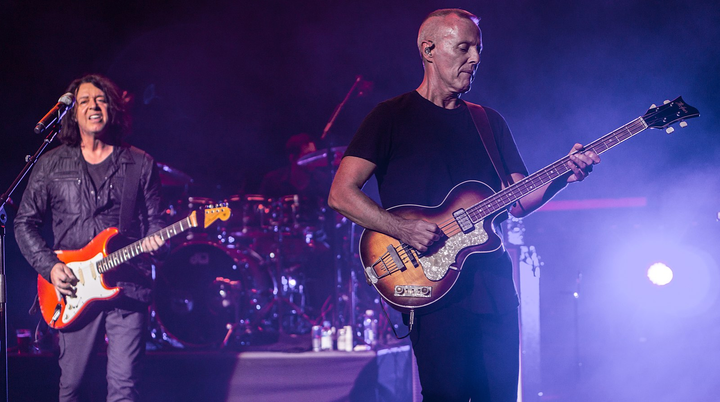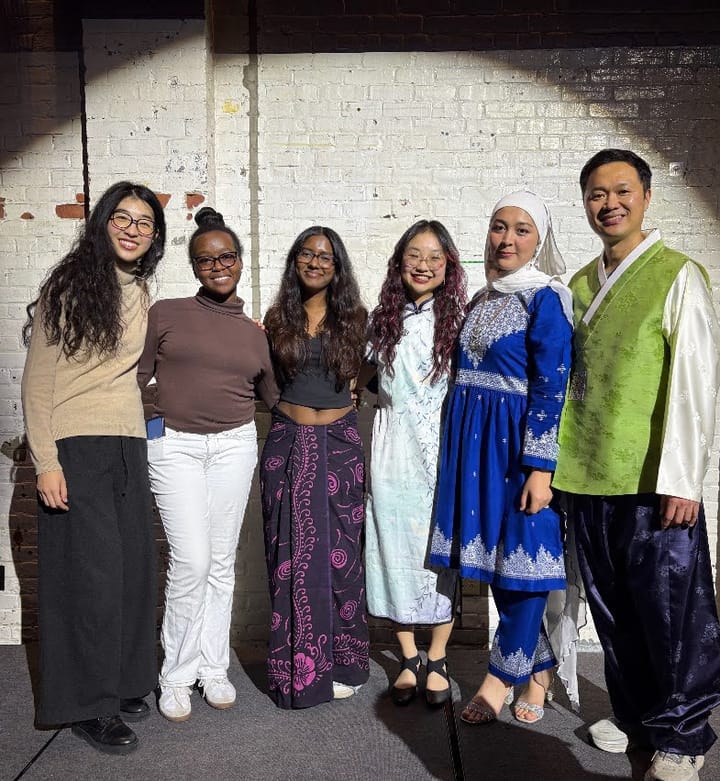"Marriage Pact" Builds Community on a Scattered Campus
Some quotes may have been edited for clarity.
The energy in Charles Pratt Hall was tense last Tuesday night, March 30. First-years studied anxiously in the common rooms, refreshing their emails over and over again in hopes that the much-anticipated Marriage Pact match-making results would be delivered.
Just as they began to lose hope, the students received an email with the initials of their matches. As soon as the initials were released, students attempted to find out who they’d gotten matched with by searching in the student directory. In line for Late Night at Val, Khalid Mohamed ’22 reported that “the whole building was buzzing with excitement about who could be the person whose initials they got.” Within an hour of the initial email, full names were released.
It seemed that everyone had filled out the Marriage Pact survey, which promised to algorithmically calculate Amherst students’ soulmates based on 50 questions ranging from political affiliation to subjects like unconditional love. The survey had gained a lot of traction since the week prior, when it began sending students follow requests on Instagram. The Marriage Pact has been run successfully at universities like Columbia, UCLA, Duke, Wake Forest, Tufts, Dartmouth and more. Unsurprisingly, the Association of Amherst Students (AAS) soon sent out an email encouraging students to fill out the survey. By the end of that week, over 1000 students had filled out the questionnaire.
While the survey gained a lot of buzz, it was clear that most were not expecting true love from the survey. In their email, the AAS stressed, “This is no commitment – just a fun way to maybe meet a new acquaintance, bff or maybe something more!” While filling out his survey, Aidan Orr ’24 joked, “If I don’t find my wife through this, I’m going to have to intervene.”
Despite the high participation rate, some obstacles still arose. On March 29, the Monday before the results were released, the Marriage Pact sent an email saying that there were more straight women than men to match them with, and that “the last 149 heterosexual female signups are facing impending waitlisting.”
This obstacle seemed to influence some results, forcing the algorithm to occasionally give people odd matches that ignored their answers for some of the questions. An anonymous sophomore reported that she was matched with a heterosexual girl already in a relationship. A senior who wishes to also remain anonymous reported that he’d been matched with an off-campus girl who was also in a relationship.
Amherst is a small community, so many people were matched with people they already knew. Karla Munos ’24 says that she and her friends realized that “it’s hard to do this with a small campus since we all basically know each other. Some of my freshmen friends got seniors or my TAs, some got their CAs.”
Because of this, the Marriage Pact also had large implications for the LGBTQ community on campus. Since the campus is already small, it is natural that the LGBTQ community would be even smaller. This resulted in many people being matched with friends or people they had been involved with in the past. A student in theGroupMe chat for students on campus texted that she had “yet to see a gay person get someone they don’t already know, but that’s the nature of a small campus community.”
Although many people did not appreciate being matched with people they knew, it was a nice surprise for some. Grace Walker ’24 was satisfied to be matched with an acquaintance, saying that “now if I ever feel like reaching out, I have a convenient conversation starter.”
While some people did not get their ideal matches, many students appreciated the opportunity. Walker remarked, “I think it could never work as a real dating algorithm because everyone went into the process with different intentions, but it definitely works well as a community-building activity. It gives people something to talk about, like a personality quiz or astrology.” In the middle of a seemingly never-ending pandemic, when so many people may feel isolated and disconnected, the importance of events like these is unparalleled. As Aidan Orr ’24 remarked, “It’s a nice sentiment because it gives you the opportunity to meet someone outside of your immediate circle, especially now when there aren’t many chances to meet strangers.”




Comments ()